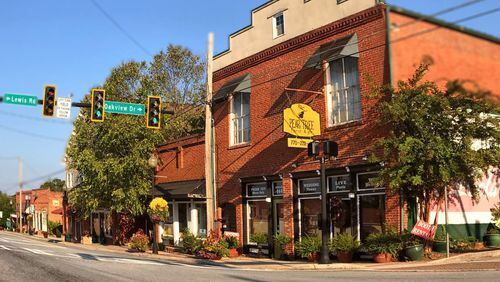A final public hearing and possible vote are scheduled for Feb. 27 by the Cobb County Board of Commissioners that would allow more small business incentives.
The meeting will begin at 7 p.m. Feb. 27 in the BOC meeting room, second floor, 100 Cherokee St., Marietta.
Instead of three incentive programs, there would be seven incentive programs, including a new business concierge service for consolidation at all levels, with eligibility requirements in each category.
- Entrepreneurship and Innovation Program: For eligibility, the business will have to participate in IgniteHQ, an incubator run by Kennesaw State University and the Cobb Chamber of Commerce or Georgia Tech Research Institute that will be moving to Marietta. Incentives would be application for cash grants from the Cobb Innovation Fund from the Development Authority of Cobb County (DACC) and a 50 percent reduction on the business license fee for two years.
- Small Business Program: For eligibility, the business must be located in Cobb and up-to-date on all state and local taxes. Incentives would be access to data on market, labor force and real estate; coordination with state and local agencies and access to workforce training.
- Business Retention Program: For eligibility, the business will have to be in Cobb for five years, agree to remain in Cobb for three years after the incentive's expiration, be a member of a "business cluster," not be under a current incentive and up-to-date on all state and local taxes. Incentives would be access to data on market, labor force and real estate; coordination with state and local agencies; access to workforce training; DACC grants or inducements; flexible payment of sewer development fees; Workforce Innovation and Opportunity Act of 2014 funds; assistance with transportation infrastructure and acceleration of public hearing dates for zoning requests.
- Targeted Industry Program: For eligibility (meet two of three - not the first), be a member of a "target industry cluster," create at least 25 new jobs, pay an average salary of at least 1.25 times the county average for that industry and maintain an estimated economic impact of $250,000 during the incentive period. Incentives would be reduction in some or all of the following fees for plan review, water and sewer system developments, business license, building permit, DACC inducements and grants and zoning application fees; Workforce Innovation and Opportunity Act of 2014 funds and acceleration of zoning requests and/or development review process.
- Special Economic Impact Program: For eligibility, the industry would need to be targeted with at least 150 new jobs, an average salary of at least 1.25 times the Cobb average and a $300,000 investment in the county. Incentives would be reduction in some or all of the following fees for plan review, water and sewer system developments, business license, building permit, DACC inducements and grants and zoning application fees; Workforce Innovation and Opportunity Act of 2014 funds and acceleration of zoning requests and/or development review process.
- Commercial and Industrial Rehabilitation Property Program: This section would be moved to a new code section with minor edits.
- Enterprise Zone Program: This section also would be moved to a new code section along with an incentives recapture provision.
About the Author
Editors' Picks
The Latest






